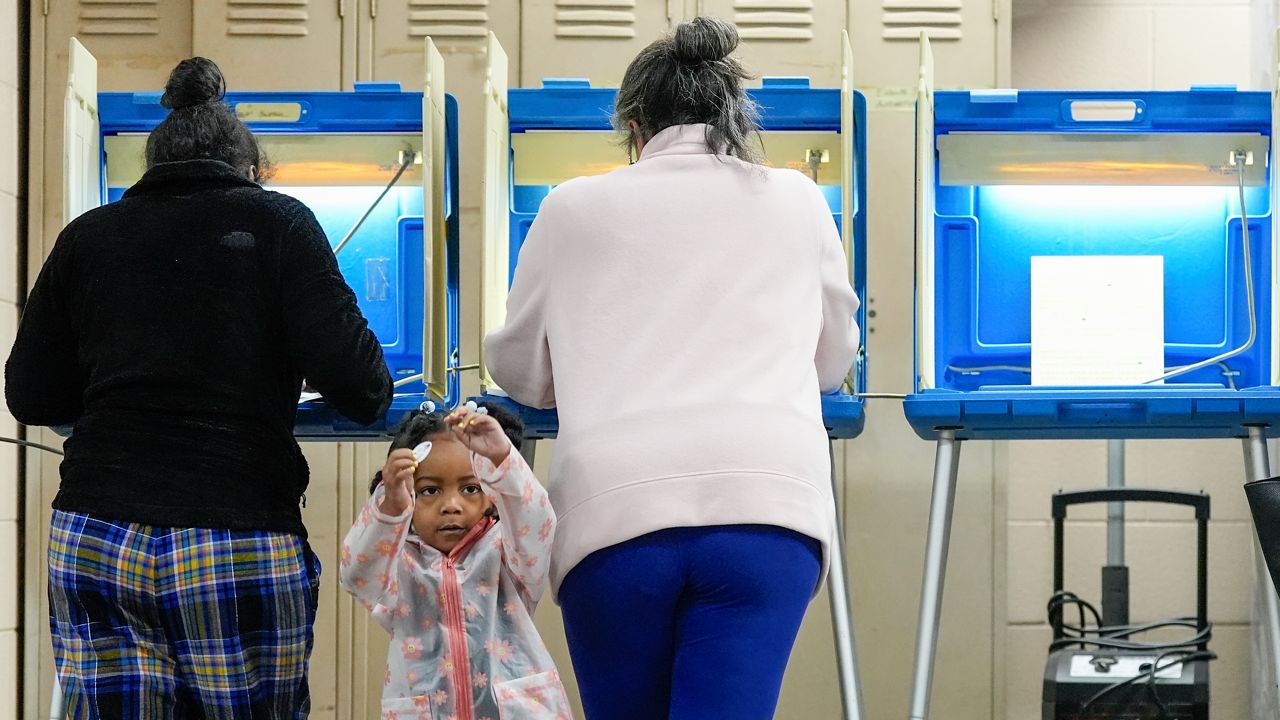MADISON, Wis. (AP) — Private money to fund elections will be banned in Wisconsin after voters approved a constitutional amendment Tuesday put forward by Republicans in reaction to grants received in 2020 that were funded by donations from Facebook founder Mark Zuckerberg.
Voters also approved a second question put on the ballot by the Republican-controlled Legislature that amends the constitution to say that only election officials can administer elections. That’s already state law, but putting it in the constitution makes it more difficult to repeal or change.
The Wisconsin Republican Party hailed approval of the amendments.
“Wisconsin has spoken and the message is clear: elections belong to voters, not out-of-state billionaires,” said state GOP Chairman Brian Schimming in a statement.
By adopting the amendments, “voters sent a clear message that they want to keep private money out of election administration,” said Rick Esenberg, president of the conservative Wisconsin Institute for Law and Liberty.
“Whether you identify with the left or the right, ensuring the fairness and integrity of our elections should be a shared priority,” he said in a statement.
Democrats opposed both measures, which they argued would make it more difficult to conduct elections in the presidential battleground state. They also raised concerns about how the broadly written election workers provision would be interpreted and implemented by local election officials.
Both constitutional amendments on the ballot were in reaction to grant money that came to Wisconsin in 2020 from the Center for Tech and Civic Life, a liberal group that fights for voter access. That year it received a $300 million donation from Zuckerberg and his wife, Priscilla Chan to help election officials buy supplies and run elections at the height of the COVID-19 pandemic before vaccines were available.
The state’s five largest cities, all of which President Joe Biden won, received $8.8 million. They were among roughly 200 communities in Wisconsin that received around $10 million as part of $350 million given out nationally.
Republicans who dubbed the money “Zuckerbucks” complained the bulk of the funds went to Democratic strongholds and claimed it was an attempt by the billionaire to tip the vote in favor of Democrats. The argument came amid false claims made by former President Donald Trump and his supporters that widespread voter fraud led to Biden’s 2020 win.
Since 2020, Republicans in at least 27 states have outlawed or restricted private elections grants.
The Wisconsin measures were supported by Republicans and conservative groups, including the Wisconsin Institute for Law and Liberty and Election Integrity for Wisconsin. They are opposed by an array of government watchdog and liberal groups including the American Civil Liberties Union, Common Cause Wisconsin, Wisconsin Conservation Voters and the League of Women Voters of Wisconsin.
Not a single Democratic lawmaker voted for the amendment, which was split into two questions on the ballot. Opponents of the amendments worry they could lead to attempts to stifle current practices enhancing voter participation.
Three courts and the bipartisan Wisconsin Elections Commission rejected complaints challenging the legality of the grant money.
Republicans, who control the Legislature, brought the constitutional amendments to circumvent Democratic Gov. Tony Evers, who almost surely would have vetoed the measures. Amendments are not subject to the governor’s approval.
Wisconsin voters had previously approved 148 out of 200 proposed constitutional amendments since the state constitution was adopted in 1848, according to the nonpartisan Legislative Reference Bureau.



